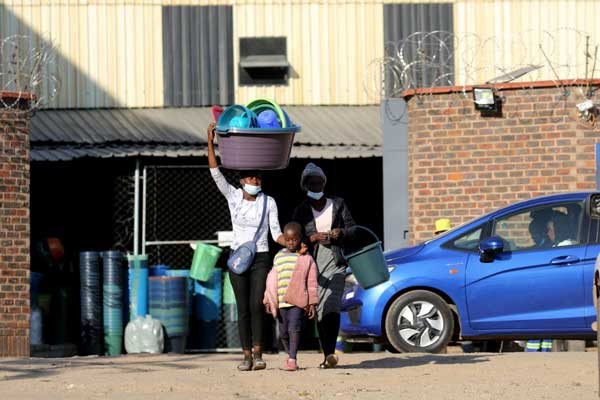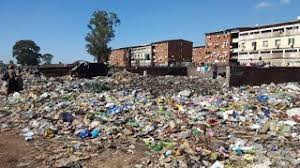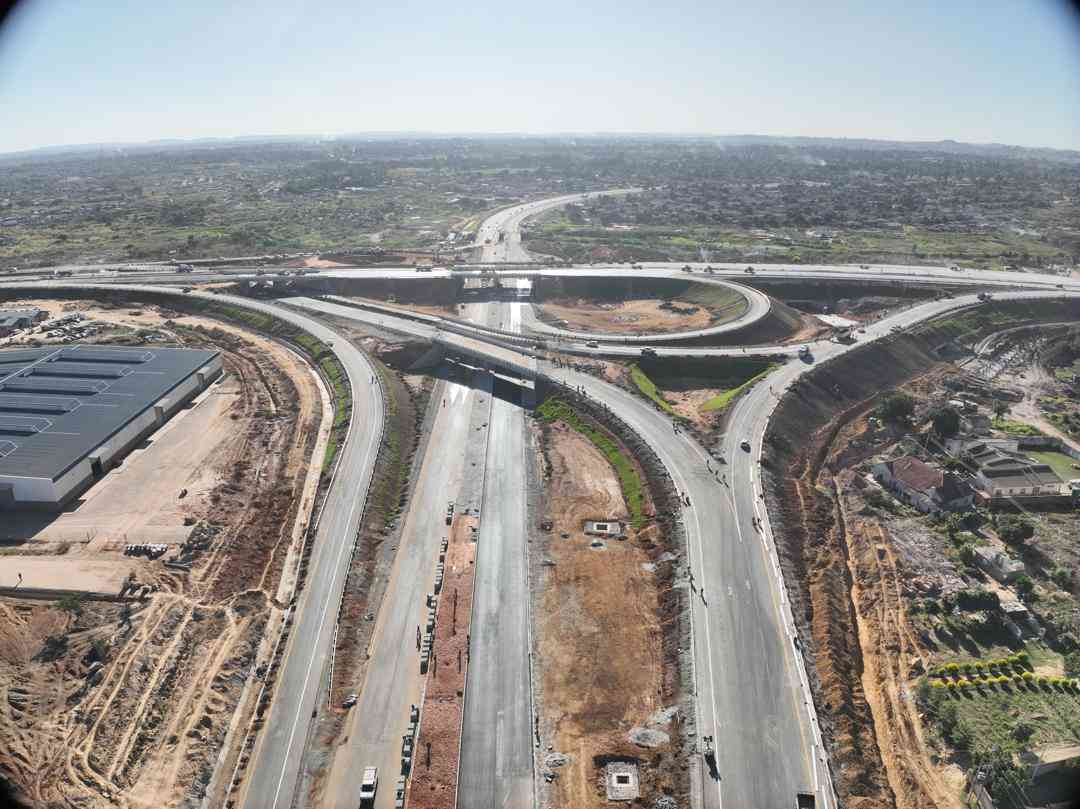
In a rush to get to the bus back to Chipinge, Cephas Sithole walks hastily with two carts loaded with plastic goods that he intends to resale at his shop.
Sithole is one of the several Zimbabwean business people who buy and sell plastics, especially cups, plates, jugs, dishes, water bottles, lunch boxes, spoons and buckets.
Most plastic utensils are made in China.
The Chinese-made goods have turned the once bustling industrial area of Graniteside into a mini-China City.
The use of plastic in Zimbabwean households is quite common as they are handy, durable, and easily accessible.
However, plastic needs proper handling as it is environmentally not sustainable and needs recycling. Many households do not have the knowledge of how to recycle plastic.
Speaking to the Independent in various interviews, most people who buy the plastic objects admitted that they did not have knowledge on recycling.
They also admitted that taking the plastic to recycling companies would be expensive for them. Sithole told the Independent that the plastic utensils he bought in Harare were popular in Chipinge although he was not aware of the environmental damage caused by plastic.
- Nash Paints commissions 1.1 m plant to increase production capacity
- Graniteside the new China City for plastics… authorities sweat over accumulating plastic waste
- EMA ramps up hazardous substance monitoring
- Man attempts to kill cop with a sword
Keep Reading
“In Chipinge, most people prefer utensils made of plastic to metal, so when plastic things are of no use we throw them away. It is costly for me to try and bring them back here,” he said.
Abusinesswoman who frequents the plastic shops, Rutendo Hwava said she disposes of all the broken plastic or uses it to light fires.
“The challenge l face with bringing back the plastic is they want their receipts to prove l bought from them. A receipt is a small thing and l can lose it along the way. I also don’t have transport money to come from Norton just to drop off the plastic,” she said.
According to shop owners, between 50 and 100 customers pass through their doors each day.
“The plastics business is booming because many people visit us to buy the goods either for resale or for domestic use,” a shopkeeper, Esther Saukila, said.
A courier in Graniteside said he has been providing service to people from all over Zimbabwe.
“I have assisted people from as far as Kariba, Beitbridge and Mutare who come here to get these plastics for resale,” the courier said.
A few companies in Graniteside have taken the initiative to produce their own plastic by buying back and recycling used plastic.
The companies — Farai Plastics, Blue Roof and Bereka — have taken the initiative to recycle the plastic while making more utensils for resale. They also buy raw materials from South Africa.
“We get our plastic from South Africa because there are no suppliers in Zimbabwe. We also buy plastic for recycling from ordinary Zimbabweans. We pay US40c per kg,” Blue Roof manager Tafadzwa Boloza said.
Bereka Holdings manager Wales Davis told the Independent that they also offer their customers a chance to resale used plastic.
“We recycle because we make our plastic but we can only take it if it has our branding on it,” Davis said.
The accumulating plastic has also become a cause for concern for authorities in Zimbabwe. According to the Environment Management Authority (Ema), Zimbabwe generates about 1,6 million tonnes of waste annually of which according to Ema spokesperson Amkela Sidange up to 18% of it is plastic waste which translates to about 300 tonnes.
“The government of Zimbabwe banned thin plastics of less than 30 microns through Statutory Instrument 98 of 2010 which prohibits the manufacture, importation, distribution and use of plastic measuring less than 30 microns thus anyone found violating this is liable to a fine not exceeding level 14 or imprisonment not exceeding one year or both such fine and imprisonment,” Sidange said.
She said Ema was working on reducing the use of plastic goods in phases and also reducing the use of certain types of plastic materials. Sidange said inappropriate disposal of plastic remains an offence as is for any other waste in the country. Recycling significantly reduces the amount of plastic that ends up lying around in landfills or getting incinerated.
“The recycling industry is still growing in Zimbabwe and as it stands there are several players along the recycling value chain across the country.
The agency is supporting over 280 community-based organisations among those being waste picking, separation and recovery.
“As individuals, we have to realise the damage that plastic has on our environment and take it upon ourselves to dispose of our waste through proper channels,” Sidange said.
Plastic waste has remained a challenge because of its non-biodegradable nature and lack of proper disposal of high volumes of plastic, especially plastic bags that end up in landfills or drainage channels.











